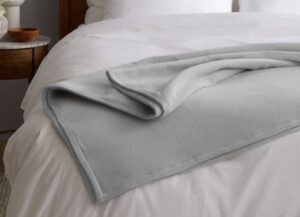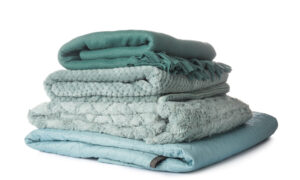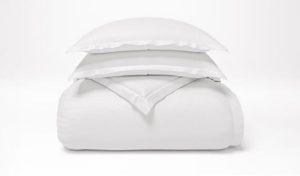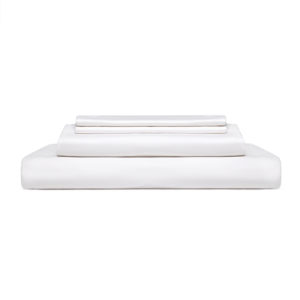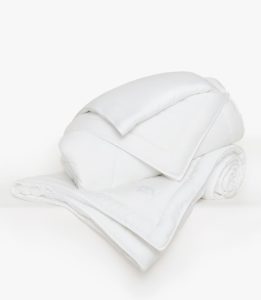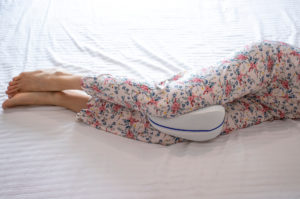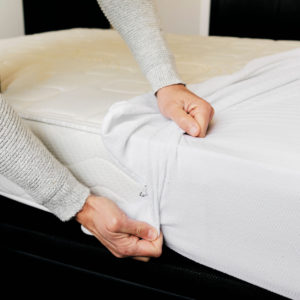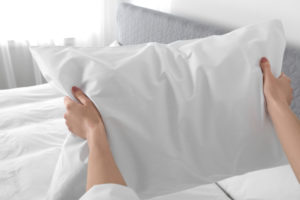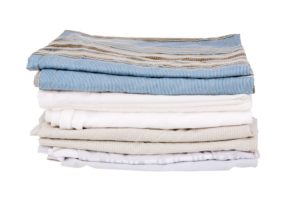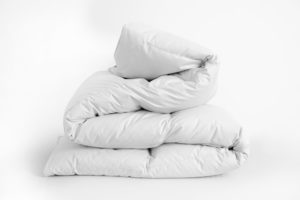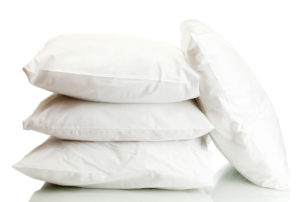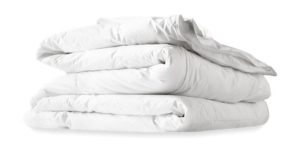How Often Should You Wash Your Sheets?
Each and every week, most of us spend approximately 49 to 60+ hours sleeping in our beds. That’s a lot of time to get the rest our bodies need to thrive, but it’s also ample time to build up dirt, sweat, oil, and other gunk on our sheets and bedding.
Proper hygiene is important in all areas of life. When it comes to our bedding, it’s perhaps more important than you might think. Without regular cleaning, dirty sheets can contribute to allergies, skin breakouts, asthma, and more. For your health and sleep quality, it’s important to keep things clean – but how often should you wash your sheets?
How Often Should You Wash Your Sheets?
Most people should wash their sheets once per week. If you don’t sleep on your mattress every day, you may be able to stretch this to once every two weeks or so.
Some people should wash their sheets even more often than once a week. If you have pets, and particularly if you let them sleep in your bed, a wash every 3-4 days is recommended. If you experience allergies or asthma, it may be worth it to try cleaning your bedding more frequently to see if your symptoms improve.
It’s also recommended to wash sheets more often in the warm summer months, as you will likely get more sweat on your bedding. Likewise, if you have seasonal allergies in the spring or summer, washing sheets more often may help relieve symptoms.
Why it’s Important to Wash Your Sheets
Washing sheets and making your bed once a week may seem excessive, but it’s well worth your time. Even after a few days, bed sheets can accumulate significant amounts of:
- Dirt
- Dead skin cells
- Body oils
- Sweat
- Dust mites, including their carcasses and fecal matter
While most of us can reconcile sleeping in our own dirt and sweat to a degree, it’s this last item that concerns many of us the most.
Dust mites are microscopic creatures that are very common in most households. They do not bite, but they can lead to skin rashes and irritation, and may worsen allergy symptoms for many people.
Dust mites can reproduce at prolific rates and can live solely off of dead skin cells. At any given time, there can be tens of thousands, even hundreds of thousands, of dust mites living in your mattress and bedding. Even if you’re not allergic to dust mites, you probably don’t want to be sharing your bed with thousands of them. Washing sheets regularly can help.
How to Wash Bed Sheets
We now know that sheets should be washed weekly, but how should they be washed?
1. Read the product label carefully to see if there are any specific care instructions.
2. Wash using the hottest water that the label lists (cotton can generally handle hot water, while polyester and some other materials should be washed on warm).
3. Machine wash using a gentle detergent.
4. If you have sensitive skin, you may consider rinsing the sheets a second time to remove any residual detergent.
5. Tumble dry on low, or hang dry.
Because washing and drying your sheets takes a few hours, many people find it easier to have a couple of sets of sheets. That way you can strip the bed, make it up with fresh sheets, and throw the dirty sheets into the wash when it’s convenient. If you’d like to purchase a second set of sheets, see our buyer’s guide here.
What About Other Bedding?
We’ve established how often to wash sheets — about once a week, ideally. But what about other bedding?
| Pillowcases | Once a week |
| Duvet covers | Once every 2 weeks to a month |
| Comforters | Once every 2-3 months |
| Blankets | Once every 2-3 months |
| Pillows | Once every 4-6 months (if washable) |
Always check the manufacturer’s care instructions, if possible. While these guidelines are generally applicable, occasionally a piece of bedding will have a unique design that requires specific care and washing.
Additionally, you should clean your mattress once every 6 months or so. Cleaning can help extend the useful lifespan of your mattress and bedding, while improving sleep quality and your health. With that said, it’s still important to replace your mattress every 6-8 years or so, to ensure you’re getting the best sleep possible.

Still have questions? Ask our community!
Join our Sleep Care Community — a trusted hub of sleep health professionals, product specialists, and people just like you. Whether you need expert sleep advice for your insomnia or you’re searching for the perfect mattress, we’ve got you covered. Get personalized guidance from the experts who know sleep best.


